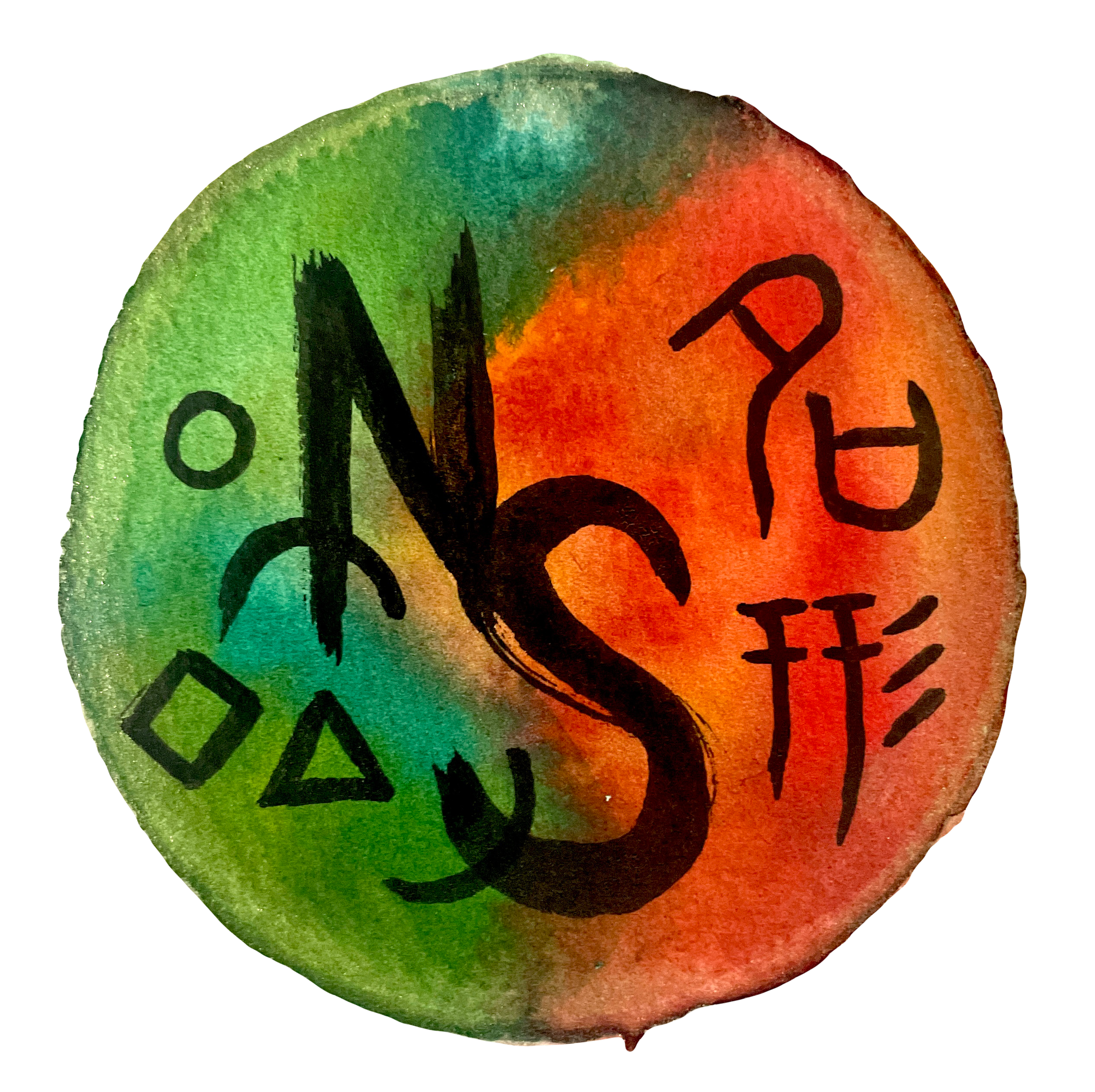Holistic, Collaborative, & Creative Care
A strong therapeutic alliance is dependent on an open and clear relationship between a client and their psychotherapist. At Nameshape Counseling, this spacious and welcoming environment is developed through holistic approaches to healing, client-counselor collaboration, and creativity. Hew Paschich, MA, LPCC can help clients gain perspective regarding the ways in which their mental, physical, cultural, and spiritual contexts intersect and impact their health and wellness. Through this holistic approach, clients can expect to be treated as the experts of their own experience working in collaboration with their counselor to develop and pursue treatment goals. They can also expect dynamic and creative approaches to care rooted in somatic therapy, art therapy, and mindfulness.
Services & Rates
55-minute Counseling Sessions
I offer 55-minute telehealth sessions on a sliding scale at a rate of $65 - $130/session. These sessions best serve individual clients.
I can provide a Superbill for potential insurance reimbursement as an out-of-network provider.
80-minute Counseling Sessions
I offer 80-minute telehealth sessions on a sliding scale at a rate of $120 - $160/session. These sessions best serve clients seeking couples or partnership counseling together.
I can provide a Superbill for potential insurance reimbursement as an out-of-network provider.
If these rates or services do not meet your needs, please reach out with what you are looking for and I will do my best to accommodate you or provide suggestions for other avenues of care.
Additionally, I offer limited reduced sliding scale slots to clients in need via Open Path Psychotherapy Collective. Visit my profile for more information.
Consultations & Session Information
Before starting services, I conduct a free consultation with prospective clients to gather some information and provide an opportunity to begin getting to know one another. This provides me with the opportunity to determine if I can provide the care you need or if it is more appropriate to refer you to another provider. It also allows prospective clients to ask me any questions they may have. Consultations typically take around 15-minutes and are held over video call.
I typically meet with clients on a weekly or bi-weekly basis, but I am happy to discuss other options as needed. Currently all sessions are being held virtually via video call.
Private Meditation & Yoga Instruction
I offer customized meditation and yoga instruction at a rate of $35 per hour for individuals who are not seeking counseling services through Nameshape Counseling. These sessions can be conducted online with the potential to meet in person depending on scheduling availability and location.
Guest Lecturing & Other Services
I have experiencing lecturing across a variety of topics in graduate school settings and am happy to make appearances in classes, at events, or on panels. Additionally, I can provide consultation regarding curriculum development for both workplace or educational training in addition to running workshops for those interested.
Please reach out to me directly at hew@nameshapecounseling.com to explore options and rates.
About Hew, MA, LPCC
(they/them/theirs)
I am the owner of Nameshape Counseling which was founded in 2023 following four years of supporting individuals and groups across LGBTQIA2S+ identities in queer-focused community mental health settings. My work both currently and historically includes–but is not limited to–accompanying transgender, cisgender, queer, lesbian, gay, bisexual, monogamous, and non-monogamous folks through their healing journeys. I identify as queer and non-binary, White, living with chronic pain, being neuroqueer, and navigating the world as a lifelong class straddler across socio-economic groups. My ancestry weaves together the lineages of various peoples and cultures from across Europe, Asia, and Turtle Island (North America).
I believe that all behavior is rooted in an attempt to care for oneself and survive in a beautiful but challenging world. This includes both the healthy and the maladaptive, strengths and growth edges, wisdoms and neuroses. Within this framework, even aspects of experience rooted in fear, anger, shame, and other “negative” emotions are views as inviting us to look at something, to uncover the inherent wisdom being obscured or protected. Accessing that wisdom can be challenging and dysregulating without support. Within sessions, I work to facilitate clients’ ability to contact the sanity within these difficult and often distressing experiences to alleviate their pain and develop new life skills.
My approach to counseling considers a myriad of intersecting factors that lead to various mental health concerns. This includes the complexities of identity, cultural norms, social structures, family systems, spiritual beliefs, and environmental crises which can all detract from or support holistic wellness. Holding this type of intersectional and expansive approach also means that I tend to favor harm reduction strategies and skill development. It is my hope to increase clients’ sense of agency in their lives while they not only reconnect with themselves, but to their larger ecologies, including human and more-than-human communities. My approach is also firmly situated in the practices of healing justice and trauma-informed care within a world affected by racism, sexism, heterosexism, ableism, xenophobia, and other forms of institutional, ideological, interpersonal, and internal violence.
My path to becoming a mental health counselor began with my own experiences and struggles coping with persistent depression, grief, and loss. I graduated with a MA in Clinical Mental Health Counseling: Contemplative Psychotherapy & Buddhist Psychology at Naropa University in Boulder, CO in 2023. Prior to that, I completed a BA in Contemplative Psychology: Health & Healing, a BA in Yoga Studies, and a 1000-hour Yoga Teacher Training through Naropa University in 2020. As of fall 2025, I am working towards a PhD in Ecology, Spirituality, & Religion through the California Institute of Integral Studies. I have been studying Buddhist, Taoist, and yogic traditions for several years after first being introduced to meditation in 2001. I work with and support clients across many faiths and beliefs and offer both secular and spiritual support to clients depending on their worldview.
In my free time, I am often found writing, painting, listening to records, reading, practicing tai chi and yoga, tending to plants, cooking, baking, walking my dogs, and gaming (in all its forms).
Who do I work with?
LGBTQIA2S+ folks
Folks living with depression and anxiety
Folks processing trauma
Folks navigating both major and minor life transitions
Folks interested in understanding, discovering, or expanding their sense of embodiment
Folks wanting to change dissociative behaviors and coping strategies
Folks exploring or navigating non-monogamous relationships
Much of my work is focused on understanding and challenging a client’s internalized narratives associated with feelings of hopelessness, lack of worth, shame, and anger. These narratives are often generated by combinations of personal trauma, family dynamics (including generational trauma), and cultural contexts. This work allows clients to regain or discover their agency as they rewrite narratives and habitual patterns.
I specialize in working with LGBTQIA2S+ clients and clients who identify as neuroqueer or neurodiverse who are experiencing anxiety, depression, generational trauma, and life transitions. I often find myself working with clients who are interested in discovering, defining, and experiencing embodiment, especially those who have historically relied on dissociative patterns to get through life. Another area of specialization is working with individuals interested in or actively navigating ethical non-monogamy, polyamory, and relationship anarchy.
FAQs
What is a Nameshape?
Nameshape is an experiment in poetics at the crossroads of creativity, community building, and counseling. As a writer, I believe that playing with words and meanings can be incredibly therapeutic. Through that process of discovery, curiosity, and creativity there is an immense potential to gain insight into how someone relates to the world and the people around them. It is a practice that is rooted in my love of poetry and concepts from some of my favorite works of fiction such as Earthsea by Ursula K. Le Guin.
Something I often hear from clients is how they have to translate their experience for others, filtering themselves to fit into various cultural contexts and dominant narratives. This can lead them to getting caught up on trying to find the right word or words to describe their experience. In some cases, it can lead to someone giving up on trying to communicate their experience altogether. My response to this is asking clients to let go of translating the language of their experience. Instead, I do my best to put in the effort to learn about their experience through their terms. I want to learn their language.
What is your meaning for this experience or word? If you cannot come up with a word to communicate something, is there a movement or a sound you can use instead? Perhaps a drawing? Rather than reducing whatever is happening into something bite sized, easily digested, or commonly understood, I encourage clients to expand and be messy. My role is to reflect what I hear to ensure that I have understood the meaning rather than expecting a client to have their struggles neatly packaged and ready to go. This process is something I like to think of as “name shaping.”
Why is holistic care important?
The modern medical model that many organizations are turning to or have been founded on tends to hold a narrow view of healthcare concerns. While this provides some amazing opportunities for highly specialized care in cases of severe or rare disease and illness, it is often not well suited for general health nor mental health. This allopathic approach can miss factors affecting the mind because it ignores the body or may treat a concern, like anxiety, using only medication while never addressing the underlying cause to provide a long term solution. In contrast, holistic care aims to view the bigger picture and to provide insight into as many causes and conditions as possible when addressing health and wellness. This might be familiar to some as more of a systems approach.
Some of the things I consider when reviewing clients’ mental health are diet, exercise, interpersonal connections, living situation, income, trauma history (lived and inherited), and social locations. This approach can also provide clients insight into where they have the most control in their life to empower them in whatever change or healing they are pursuing. For example, transphobia has major impacts on mental health, but it is not a problem that any one individual can solve on their own. In session, a client and I might discuss where they do have power on an individual level while also brainstorming how they can connect to community that nurtures their brilliance and can work together to keep one another safe and perhaps generate larger societal change and healing. This can be helpful for validating experiences that are largely outside of our control so we can redirect our energy where it will do the most good.
What do you mean by collaborative care?
While I can provide insight, perspective, and education based on my knowledge of therapeutic skills, the nervous system, and behavior, you are the expert of your life and experience. Collaborative care is rooted in this fact and honors your expertise, strengths, and beliefs. This approach also allows clients to determine how much they want to lean into or stay away from common features of Western mental health counseling such as treatment planning and diagnosis. Promoting client agency in this way also affords us a degree of creativity and play when figuring out what is going on in your experience and how to work with it. It also helps balance the role power present in the counselor-client relationship.
There are several studies available pointing towards the therapeutic alliance–the relationship between the counselor and client–as being one of the most important factors in the success of mental health counseling and psychotherapy. Collaborative care is all about developing a strong, open, and compassionate relationship in the therapeutic space.
What do you mean by creative care?
Creative care means that I do my best to stay adaptive and fluid when working with clients. While certain modalities and interventions such as Dialectical Behavior Therapy (DBT), motivational interviewing, Internal Family Systems (IFS), and so on can be great fits for specific clients or client concerns, I tend to integrate multiple techniques to adapt to any given situation. Often, as a client processes trauma or transforms an unwanted behavior, a new concern might arise which may or may not be treated with the same technique or group of techniques. Creative care also considers a client’s worldview and understanding of their mental health. For example, if a client comes to me and frames their depression or anxiety from the perspective of a spiritual belief, I view it as an invitation to get creative with our approach and the avenues we consider for care.
Other ways creativity may show up is by sketching a feeling, imagining a troublesome habit as a being in a chair across from you, writing poetry, or using dance and movement to regulate the nervous system.
What if I cannot afford your services?
I also work with clients through other organizations and may be able to refer you to one of those organizations which offer sliding scale rates and/or accept insurance and Medicaid. While I cannot guarantee that you will work with me when providing this type of referral, there is likely another counselor who will be a good fit. I can also provide referrals to organizations I know of and other counselors that I have worked with. I am hoping to expand my sliding scale options and low-cost services in the future and also plan to start accepting insurance and Medicaid as soon as possible.
What if you are not taking new clients?
If you happen to reach out and I am not currently taking new clients, I will do my best to connect you with an organization or individual counselor that may be able to help. In these situations, I may ask for some information regarding why you are seeking counseling and what you are looking for in a counselor. I can also offer to place you on a waitlist whether or not you choose to pursue services through another provider in the meantime.
Contact Hew
If you are ready to schedule a free consultation, please click “Schedule a Free Consultation”.
If you have any questions, please fill out the contact form below. This form is meant specifically for interested clients, I kindly ask that business services do NOT solicit through this form.





